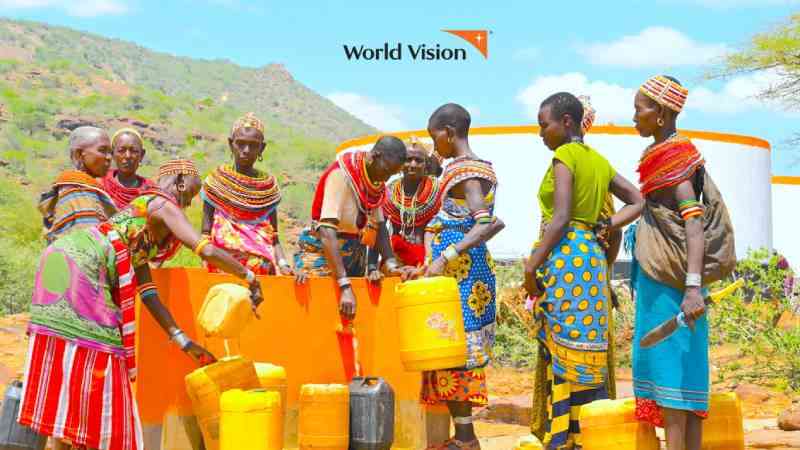
Audio By Vocalize
Written by Gilbert Kamanga, National Director, World Vision Kenya. 
Access to clean and safe water is a fundamental human right. This basic need is also enshrined in the Constitution of Kenya, which underscores its significance and the need to prioritise efforts aimed at promoting universal access to clean and safe water in the country.
This is of utmost importance to families, especially children in hard-to-reach places, who are the most vulnerable to the adverse effects of water scarcity, as well as unsafe water sources.
Indeed, water scarcity impedes children's education and well-being as a lot of their time is spent walking long distances to fetch water. Worse still, they end up being exposed to waterborne diseases from contaminated water.
Their parents and caregivers - especially mothers who usually accompany them to search for water - lack sufficient time to engage in economic activities that can enable them to take good care of their families.
Lack of clean and safe water is therefore a challenge that has an enormous impact on the health, education, economic development and social welfare of communities.
Yet, Kenya - just like many other developing nations - still grapples with this problem. However, through concerted efforts and commitment by the government and key stakeholders in the Water, Sanitation and Hygiene (WASH) sector, we can surmount this challenge.
One of the most effective ways of achieving this goal is by investing in appropriate and adequate water infrastructure. This involves building climate-proof water supply systems such as mechanised boreholes and wells, as well as water treatment plants from surface water abstraction (rivers and lakes) to deliver clean and safe water to communities.
Such initiatives should go hand in hand with empowerment programmes that will enable community members to take ownership of implemented water projects and improved governance through implementation of acceptable rural water management models, to enhance sustainability.
Since water is a finite resource that is vital for human existence and survival, it needs to be conserved and used efficiently so it can continue to sustain livelihoods, while meeting our current needs as well as those of future generations.
As such, increased advocacy on the significance of water harvesting, re-use or recycling among communities is important. This is a collective responsibility because, it is only by reducing wastage that more people can have access to available clean water sources in the country.
Strengthening water governance is also important. This involves enforcing regulations and policies that protect water sources, promote equitable water access and champion transparency and accountability in water management. Initiatives aimed at improving monitoring and surveillance systems to promote adherence to water quality standards are also worthwhile.
Last but not least, we need to embrace proper sanitation and hygiene practices to promote access to clean and safe water for communities. Curbing open defecation through increased use of toilets as well as provision of hand washing facilities and proper waste management practices can avert deadly water-borne diseases that are linked to contaminated water sources.
In partnership with the government among other key stakeholders, World Vision is committed to contributing to the realisation of the Sustainable Development Goal (SDG) 6 through accelerated universal and equitable access to Water, Sanitation and Hygiene services in Kenya.
In 2022, World Vision Kenya WASH projects enabled over 200,000 people to access water services and close to 150,000 people to enjoy access to proper sanitation facilities within their households around the country. A majority of those that benefitted from these projects are children.
Stay informed. Subscribe to our newsletter